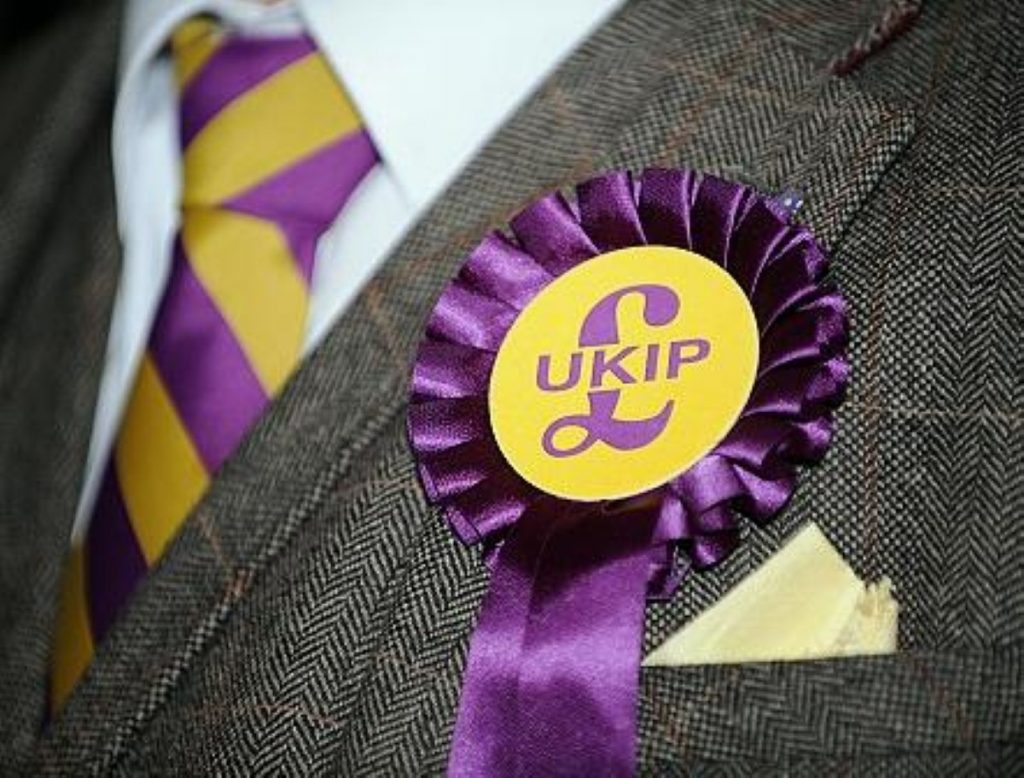Living in the past? Clegg and Farage trade blows
Nigel Farage has hit back at Nick Clegg after the deputy prime minister claimed he 'understood' the concerns of Ukip voters – but criticised them for living in the past.
Clegg had claimed in his first monthly press conference he had sympathy with Ukip voters who "don't like a lot of what they see" and said to "totally understand" their concerns.
Farage has now responded by claiming all those wanting to remain in the EU are "not just dreaming of the past but living in it".
“The deputy prime minister seems to think that ensuring that the UK remains entangled in the only global region that is diminishing in terms of trade and influence is a way of the future," he said.


"His ideas, and the ideas of the European political elite that he so well represents, are those of the 1950s and 60s whereas Britain must be looking for global opportunities to be fit for the next 50 years."
Ukip is just a handful of points away from Clegg's Liberal Democrats in opinion polls and is set to perform strongly in next year's European elections.
Lib Dem chief secretary to the Treasury Danny Alexander yesterday said "Ukip will come and Ukip will go", but Clegg offered a more sympathetic approach to those backing the party in his first monthly press conference in Admiralty House.
"I think Ukip appeals to a constituency which I totally understand," he told Politics.co.uk.
"There are people who don't like a lot of what they see – from what they see on the telly to how people behave to touchstone issues like immigration.
"In a sense what Ukip and Nigel Farage are projecting is a promise of going backwards, to some sepia-tinted world where there are none of those challenges. It obviously appeals to some people but I could not be in a more different place on the political spectrum."
Clegg contrasted the liberal impulse to be "candid" in looking ahead to looming challenges "and confronting them" with Ukip's vision of returning to the past.
"What we need to do is explain and simply say if we turn the clock back is no way of dealing with the challenges that are unavoidable about our future," he added.
Responding to the suggestion that he was writing off Ukip as a protest vote which will not perform strongly in future elections, he said: "I think they appeal strongly to people who want a better yesterday, and I want a better tomorrow."
Farage went on the offensive by claiming that "the dreams of the European elite… are like reading a cheap cartoon history".
"He has the temerity to suggest he 'totally understands' why people vote forUkip. He doesn't even understand why the Euro is bad for Britain, was bad for Britain and continues to be bad for Britain.
"The idea that he understand what makes ordinary UKIP supporters tick shows how disconnected he is from them."
A poll by ICM for the Sunday Telegraph released yesterday put Ukip on 13% and the Liberal Democrats on 15%.
Ukip insiders say the party's surge appears to be subsiding because it has fallen away from the front pages.
It remains critical of polling companies for not including Ukip in their initial question on voting intentions – rather than lumping them in the 'other' option.
Yesterday Alexander downplayed the threat from the party in the European Union in-or-out referendum which will take place if the Conservatives win the next general election.
"Most people in this country recognise our membership of the European Union is vitally important to this country, not just now but for many decades to come," he told BBC1's The Andrew Marr Show.
"Ukip will come and Ukip will go but what matters is Britain stays a full member of the European Union."
This Friday sees the second reading of Tory backbencher James Wharton's EU referendum bill.
Clegg made clear this morning Lib Dems would stay away from the Commons chamber for the debate, which – with Labour also abstaining – means the focus will be on Tory divides on the issue at the end of the week.
"We're not going to waste any of our time helping the Conservatives indulge in their own internal feuds on the floor of the House of Commons on Friday," he said.
Today's spat may have seen Clegg and Farage trading blows, but it is the Conservatives who have more to fear from the Ukip threat.
"Ukip's influence and impact rests not on its own ability to win votes and seats, but to deny them to others – above all, the Conservative party," Professor John Curtice of Strathclyde University wrote in an article for the IPPR think-tank's Juncture journal.
"Labour and the Liberal Democrats too will eventually have to decide how to respond to a threat to their own prospects that they cannot simply ignore."
Farage's party membership went past 30,000 at the weekend, a spokesperson claimed.

